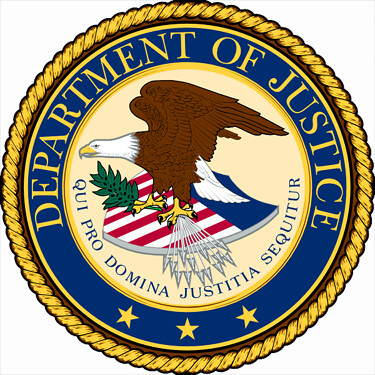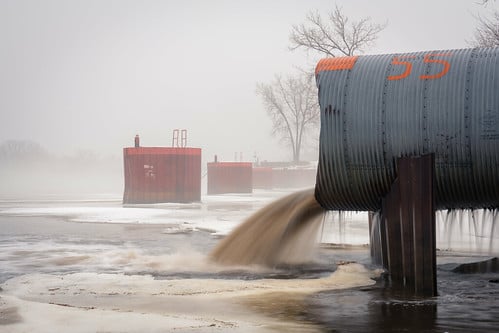In May 2017, the Environmental Protection Agency (EPA) convened a task force of career professionals to evaluate the agency’s Superfund cleanup policies and make recommendations for improvements. The Task Force issued recommendations in December 2017 (I wrote about them here), and has now issued its final report. The report includes multiple examples of accomplishments related to each of the Task Force’s five goals.
Read MoreAudit, Compliance and Risk Blog
Tags: Environmental risks, Environmental, EPA, site auditing
Feds Issue Nationwide Motor Vehicle Greenhouse Gas Standards and Declare California’s Standards to be Preempted
Posted by Jon Elliott on Tue, Oct 22, 2019
The federal government has taken another step in its car wars with California. Late in September the Environmental Protection Agency (EPA) and the National Highway Traffic Safety Administration (NHTSA) issued joint rules declaring NHTSA’s preemptive authority to set national standards covering greenhouse gas (GHG) emissions from petroleum-fueled vehicles and electric vehicles, and revoking a waiver from EPA that lets California set such standards.
Read MoreTags: California Legislation, Environmental risks, Environmental, EPA, ghg, Transportation, greenhouse
Department of Justice Reemphasizes its Disfavor for Supplemental Environmental Project Agreements with State and Local Governments
Posted by Jon Elliott on Tue, Oct 15, 2019
Since President Trump took office, the US Department of Justice (DOJ) has taken repeated steps to restrict federal attorneys from negotiating settlements in which defendants agree to conduct “supplemental environmental projects (SEPs)” in exchange for reduced formal penalties for the noncompliance that led to the agency investigation and enforcement. Proponents see SEPs as a way to promote environmental and health values by encouraging defendants to undertake projects that wouldn’t occur otherwise in order to reduce or eliminate civil and/or criminal liability. Opponents see them as rogue efforts in which prosecutors substitute their own judgment for the statutory and regulatory directives that are supposed to guide their actions.
Read MoreTags: Business & Legal, Environmental risks, Environmental, EHS, EPA, clean water
Business Roundtable (Re)states Position for Broad Corporate “Purpose”
Posted by Jon Elliott on Tue, Oct 08, 2019
The Business Roundtable has just offered its answer to the question “what’s the purpose for a corporation”? There are various ways to ask that question – existentially, legally, and/or operationally. Because the Roundtable is an association of chief executive officers of (CEOs) of many of America’s leading companies, its formal statements reflect the views of forward-looking Big Business. The Roundtable is most focused on the operational version, although press reports are pushing in all directions. The remainder of this note looks at what the Roundtable actually said, and provides some context to the multi-faceted question.
Read MoreTags: Corporate Governance, Business & Legal, directors, directors & officers
Chemical Safety Board To Work on Accident Reporting Regulations
Posted by Jon Elliott on Tue, Oct 01, 2019
Among nearly one thousand pages of expansions to Clean Air Act (CAA) requirements, the 1990 CAA Amendments legislation provided for the creation of a national agency to conduct independent investigations of major chemical accidents, to issue accident-specific findings and specific or general recommendations for improved chemical handling and regulation, and to establish chemical accident reporting regulations. This agency’s formal name is the Chemical Safety and Hazard Investigation Board – which usually refers to itself as the Chemical Safety Board or CSB. CSB was finally funded and began work in federal Fiscal Year (FY) 1997-1998.
Read MoreTags: Health & Safety, Environmental risks, Environmental, Hazcom, CAA, CSB
EPA Decides Not to Require SPCCs to Address Hazardous Substance Spills
Posted by Jon Elliott on Tue, Sep 24, 2019
The Clean Water Act (CWA) requires the Environmental Protection Agency (EPA) to define “oil” and “hazardous substances”, and includes requirements that EPA establish “procedures, methods, and equipment and other requirements for equipment to prevent discharges of oil and hazardous substances from vessels and from onshore facilities and offshore facilities, and to contain such discharges….” (33 USC § 1321(j)(1)(C)) Since 1973, EPA has required owners and operators of non-transportation-related onshore and offshore facilities to establish and implement Spill Prevention, Countermeasure and Control (SPCC) Plans if they manage more than threshold levels of oils (I summarized these requirements here).
Read MoreTags: Environmental risks, Environmental, EHS, EPA, Hazcom, effluent, Stormwater, clean water, spcc
DC Circuit Upholds Most of EPA’s 2015 Standards For Ground Level Ozone
Posted by Jon Elliott on Tue, Sep 17, 2019
On August 23, the federal Court of Appeals for the District of Columbia (DC Circuit) upheld most aspects of the National Ambient Air Quality Standards (NAAQS) for ground level ozone adopted by the Environmental Protection Agency (EPA) in 2015. The Clean Air Act (CAA) requires EPA to create a list of air pollutants based on emissions that cause or contribute to air pollution that may reasonably be anticipated to endanger public health or welfare (criteria pollutants), to establish NAAQS based on these criteria, and to review the NAAQS every 5 years.
Read MoreTags: Business & Legal, Health & Safety, Environmental risks, Environmental, EPA, Greenhouse Gas, ghg, CAA
EPA Proposes to Allow Hazardous Air Pollutant Sources to Reclassify From “Major” to “Area” Using Administrative Controls
Posted by Jon Elliott on Tue, Sep 10, 2019
The Clean Air Act (CAA) directs the Environmental Protection Agency (EPA) to define “hazardous air pollutants (HAPs)” that may pose acute health hazards, and to impose regulations to reduce those hazards. EPA requires permits for “major sources” of HAPs based on “Maximum Achievable Control Technologies (MACT),” and lesser controls for non-major “area sources.” Since the Trump Administration took office, EPA has pursued several initiatives to make it easier for sources to reclassify from “major” to “area” in order to reduce their regulatory responsibilities. For example, in January 2018 EPA ended a decades-old policy declaring that every emission source that met major source criteria at the time a MACT became effective was “once in, always in” and could not requalify as a less-regulated area source by accepting legally binding controls that reduce its “potential to emit (PTE).” (I wrote about this change here).
Read MoreTags: Health & Safety, Environmental risks, Environmental, EPA, Greenhouse Gas, ghg, Hazcom, Oil & Gas
Reversed on Appeal: Workplace Harassment Isn’t a Tort In Ontario After All
Posted by Jon Elliott on Tue, Sep 03, 2019
Although an ever-expanding range of laws prohibit workplace harassment, the Court of Appeal for Ontario has now ruled that harassment is not a free-standing common law tort in that province. This ruling reverses a trial court ruling by the by the provincial Superior Court of Justice that shocked employment law in 2017. This ruling returns workplace harassment to the realm of statutory and regulatory requirements and prohibitions, which certainly isn’t unambiguous, but at least offers more structured frames of reference. The case is Merrifield v. Canada (Attorney General), and it litigates a complaint between a member of the Royal Canadian Mounted Police (RCMP) and his employers.
Read MoreTags: Business & Legal, Employer Best Practices, Employee Rights, Workplace violence, Canadian
Motor Vehicle Greenhouse Gas Standards–California and Four Manufacturers Finesse the Turf War With the Federal Government
Posted by Jon Elliott on Tue, Aug 20, 2019
Since the Trump Administration reversed the federal government’s agreement with California for joint motor vehicle greenhouse gas (GHG) standards, federal and state agencies have moved steadily to assert their respective authorities and to sue their counterparts. However, on July 25, 2019 California and 4 major vehicle manufacturers announced a voluntary agreement that eases the state requirements somewhat while making the looser federal standards irrelevant for those companies – and for any additional manufacturers that might join later.
Read MoreTags: Business & Legal, California Legislation, Environmental risks, Environmental, Greenhouse Gas, ghg










